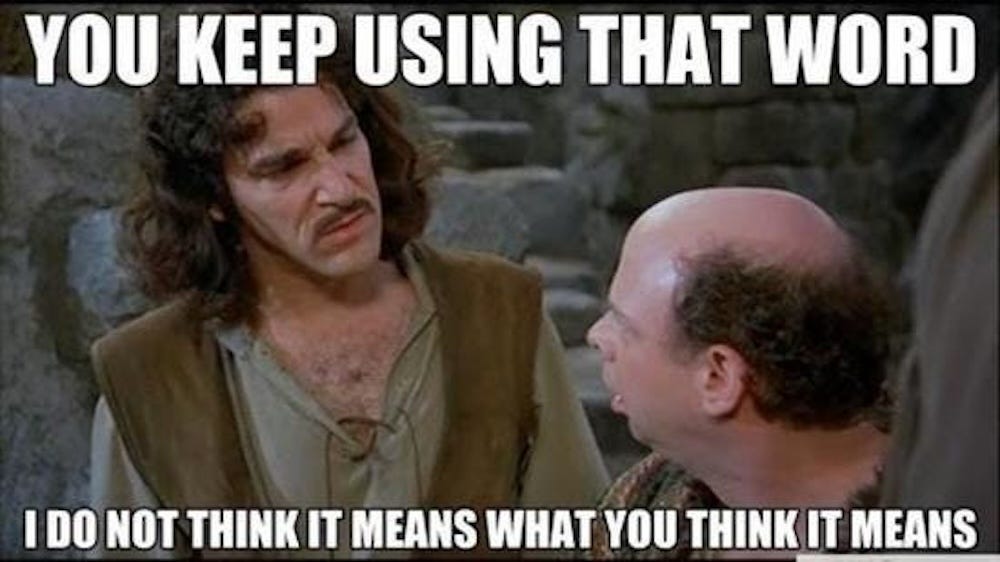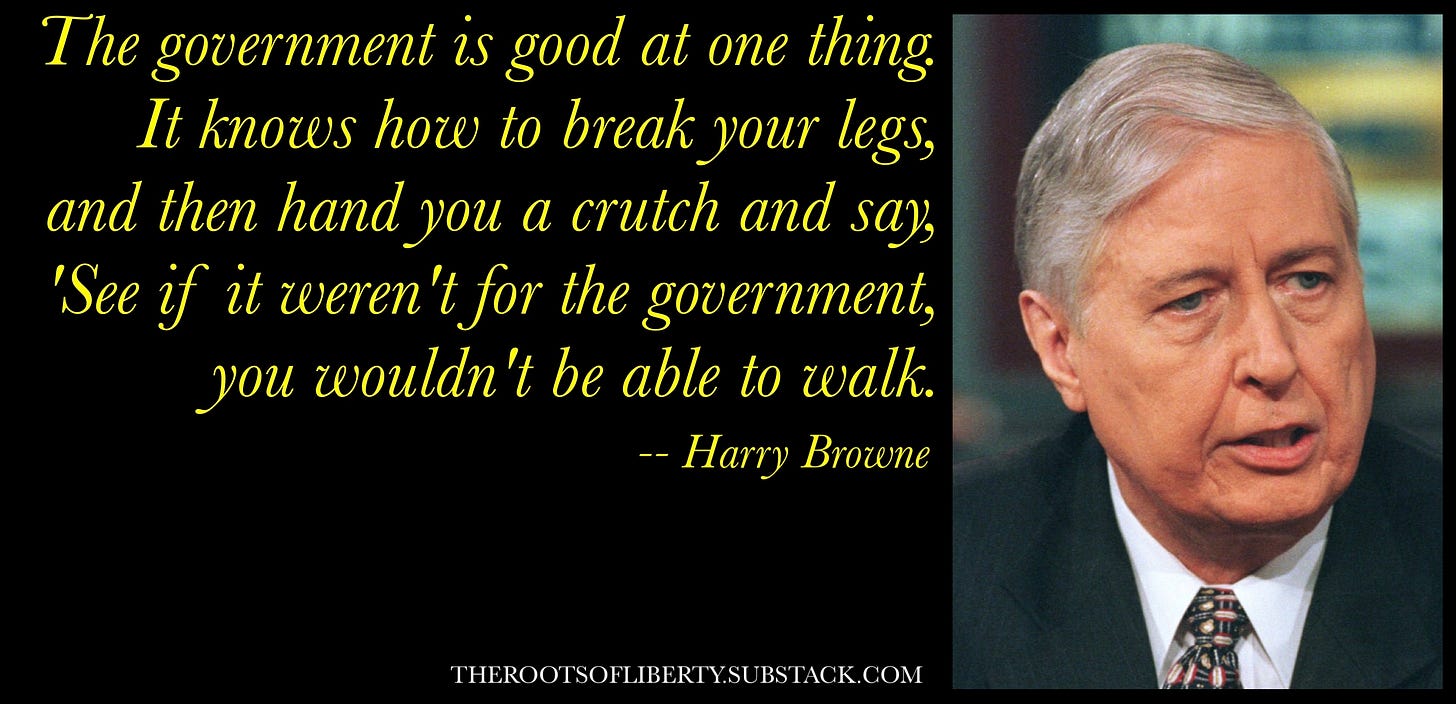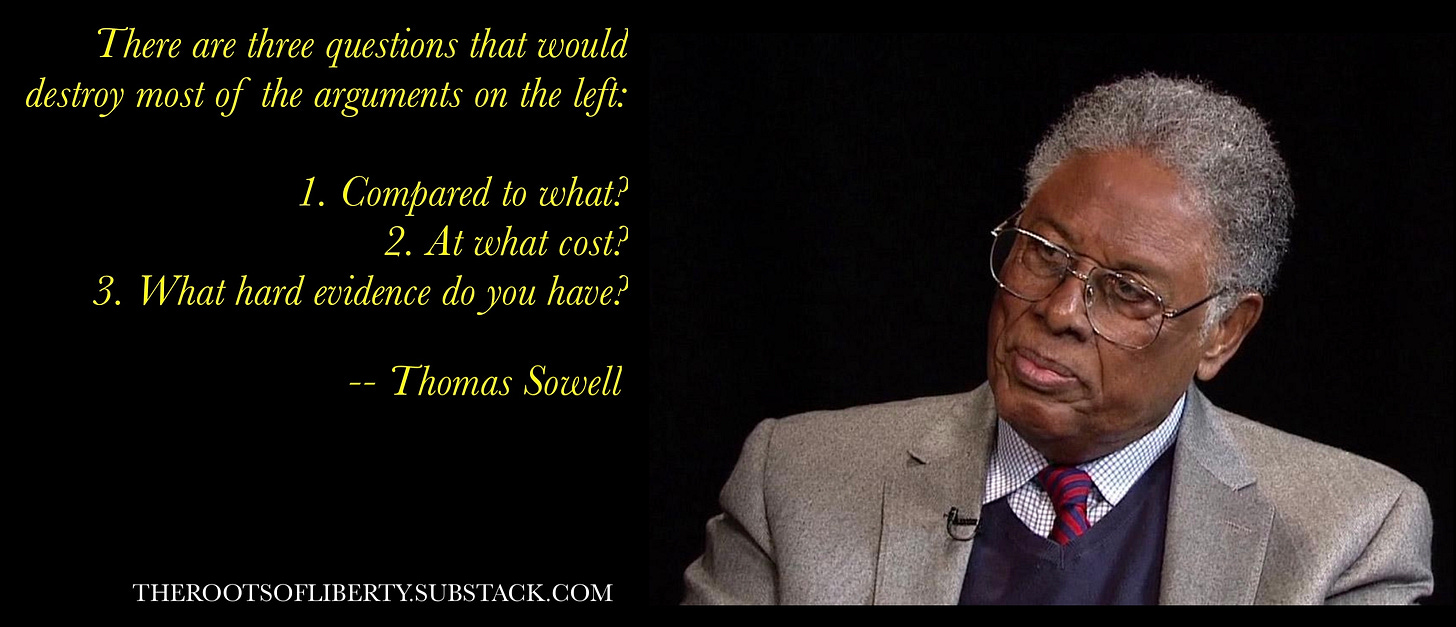"Market Failure" Fallacies
It's no news that "news" is struggling. People aren't consuming news the way they used to, and that change in behavior has affected bottom lines everywhere in media. Major staffing cuts in 2023 are being followed by more cuts in 2024. The seventy year old Sports Illustrated went belly-up last week, but that was just the most obvious data point in a sea of red. This article at Axios lists cutbacks at the NY Daily News, Forbes, Insider, the LA Times, Conde Nast, Paramount, and more.
None of this is "news," pun intended. The bit that caught my eye and blog-spired was the final bullet point.
The lack of a market solution for news has prompted regulators and philanthropists to scramble for alternatives.
That sentence presents a persistent problem in present-day society.
Is there a lack of a market solution for news? Or is it that the market hasn't sorted itself out yet?
There is definitely a demand for news out there. If you’re reading this, I am certain you are a consumer of political news, at the very minimum. You are the demand, and where there is demand, supply will inevitably emerge.
What the Axios scribe doesn't seem to get is that the demand has changed from a previous equilibrium. If the suppliers of news and other media content aren't making enough money to continue as they have been, then something else needs to change. That's how market forces work. It's not a "market failure" that the same number of employees can no longer be paid the same money as before.
When automobiles started replacing horse carriages, was that a market failure? Were the decreasing employment prospects for carriage-making workers a market failure? No, and no. The horse carriage industry needed to downsize, and downsizing meant that some employees would have to move to other fields of work. This is not "market failure," this is the market in action, and it is how human societies progress and how living standards improve.
To posit that regulators need to get involved is to cling to the inefficiencies of the past, and therefore to slow human progress, sap productive wealth out of the economy, and do harm to us all.
Ponder, in this context, the words of Argentinian President, economist, and libertarian Javier Milei, as voiced at the dilettantes at the World Economic Forum.
The market is not a mere graph describing a curve of supply and demand. The market is a mechanism for social cooperation, where you voluntarily exchange ownership rights. Therefore based on this definition, talking about a market failure is an oxymoron. There are no market failures.
If transactions are voluntary, the only context in which there can be market failure is if there is coercion and the only one that is able to coerce generally is the state, which holds a monopoly on violence.
The violence here would be regulators imposing restrictions or requirements on society in order to preserve or underwrite the media companies that haven't figured out a business model that would let them continue.
"Market failure" is a popular term among those who are uncomfortable with the idea of their fellow humans interacting absent their wise guidance. It's overwhelmingly a misnomer as well, for almost everything that is blamed on "market failure" is a result of distortions imposed by government.
Monopolies are one example. Natural monopolies are as rare as hen's teeth. Find one that has persisted for any substantial span of time and you'll find that it was created, abetted, and/or sustained by some form of government regulation. Using government force to break up monopolies, rather than removing the distortions that created them in the first place, inures us to such application of force, and gives undeserved legitimacy those who'd coerce us for their personal benefit.
Bailouts are another. Implied in the Axios quote is the notion that government should "save" the news by propping up media companies, by stifling their competition, or by interfering with the market in some other way. The media unions would be pleased by such, because that would delay the loss of jobs, and therefore dues and members, but that's just throwing good money after bad.
But, what about externalities? What about monopsony? I covered both years ago.
Cherry-Picking Externalities
Editor’s Note: Originally published at The Roots Of Liberty January 2017. Critics of capitalism and free markets, when challenged on the basis of theory, often trot out certain erudite-sounding sound-bite phrases they picked up from their anticapitalist echo-chambers. One that made its rounds during the recent hullaballoos over minimum wages was
In both cases, what is dubbed "market failure" is a combination of government distortions and improper application of property rights.
Don't be snookered. Not by the "market failures" canard, nor by the "capitalism isn't perfect, therefore we need interventions" bit. The latter is both a nirvana fallacy and a false dichotomy, and both are excuses that people drivel up in order to legitimize their coercive and authoritarian tendencies.
Before demanding an intervention against market outcomes, take a moment to ask yourself, “will the cure be worse than the disease?” “Will what I want actually work better than what the market has sorted out?” “What are the costs and consequences of my intervention?”
As for the news and legacy media? There remains consumer demand for news. It is not for you or me to figure out how to provide that news to consumers, nor for government to do so as our proxies. Market forces will sort all this out with time and the freedom to do so. That doesn’t please the media bosses, the company shareholders, the unions, or the rank-and-file in those organizations, but that’s reality.
In 1800, about 75% of the labor force was employed in growing food. Today, it’s more like 2%. Should the government have intervened to sustain those workers as their jobs disappeared? At what cost, with what opportunity cost, and with what consequences?
Countless industries have vanished since the start of the Industrial Revolution, but our societies have not suffered from those changes. They have, instead, prospered, and will continue to do so as long as the creative destruction of capitalism is allowed to work its magic.






Often, the rationale behind an assertion of market failure includes “the part you can’t say out loud” - that people are too lazy or stupid to act on their own best interests, such as following the news to keep track of what the politicians are up to.
Podcasts, streamers, and independent bloggers ARE the market solution. These forms of media supplanting primetime news programming is no market failure. It's a market triumph.
The horse carriage analogy is apropos.
Open statement to journos whining about how the market failed you: No. You failed your audience, and we left. Cry about it.